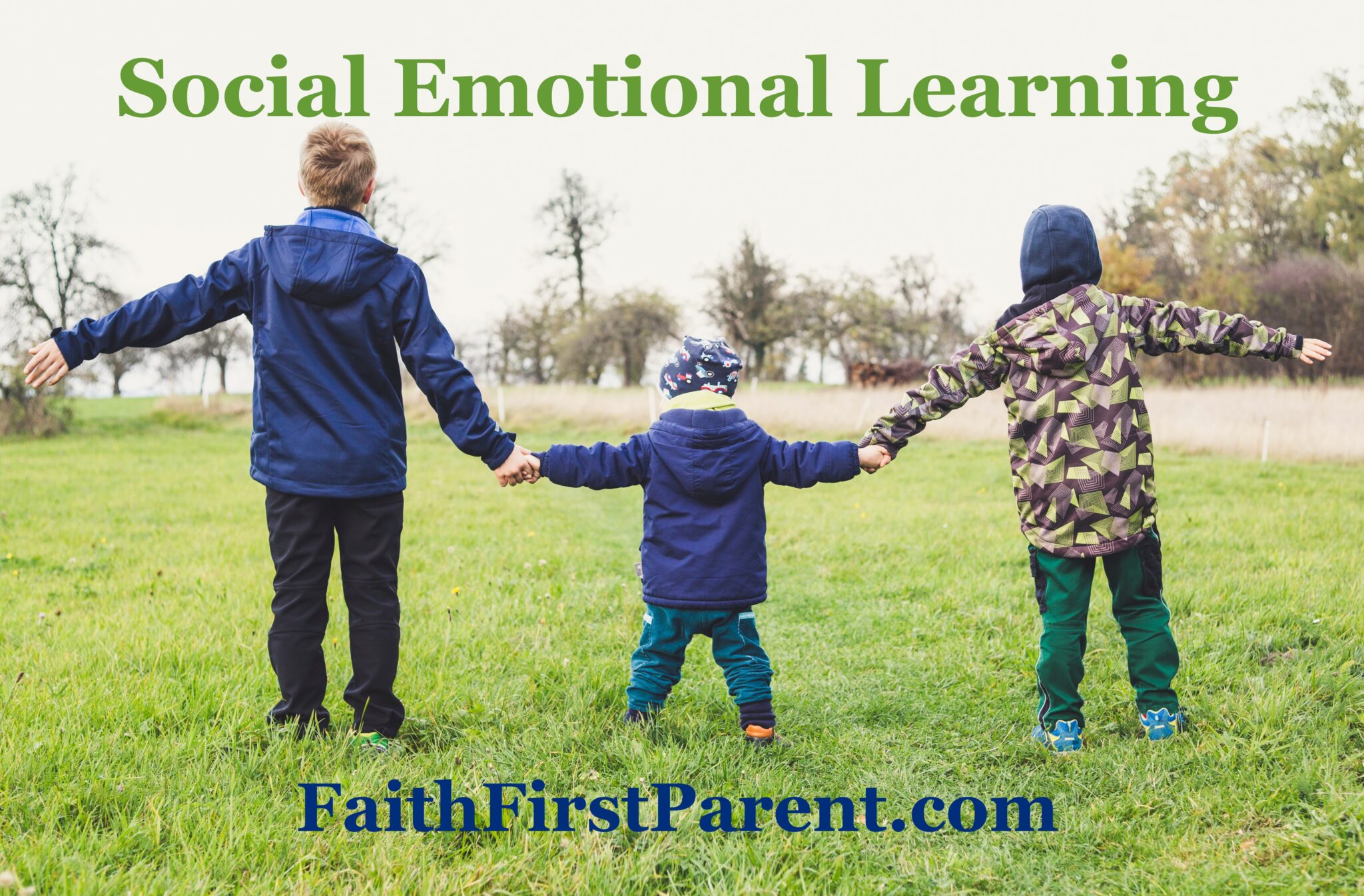Social Emotional Learning
Social emotional learning (SEL) is an essential aspect of development for all ages. Being able to express, control, and re-direct emotions, predicts later academic and social success. Children need time, maturity, instruction, and practice to manage emotional responses and self-regulate.
Playtime is the training ground for social emotional learning for littles. When playing, children have an opportunity to practice communication skills, learn to share, cooperate, resolve conflict, and build friendships. Time and intentionality are needed to instill these life skills. Beverly Lonsbury, Ph.D. states, “Children become what they practice. As they learn to make guesses about how other children feel and what they might need, they are practicing essential skills that help them show empathy and kindness toward others.” Play provides an opportunity to train children to be socially aware of themselves and others.
Also, within the context of play, children act out emotions they are dealing with in life. Help your children put words to feelings by identifying emotions, using descriptive words such as frustrated or disappointed rather than simply mad or sad. Guide your children in problem solving to alleviate angst. When children practice with adults, they are better able to manage future stressful situations. This is especially crucial with the current pandemic, social unrest, and other stressors.
Children are multi-sensory learners, using all five senses to investigate and examine their world. In providing a variety of hands-on experiences, we allow children to experiment and try new skills. Failure to master a skill and the frustration that follows can be used to encourage perseverance and problem-solving. When a skill is mastered, it can be built upon for more difficult tasks or applied to other areas of learning.
For school-age children, roleplaying can be an effective way to add strategies to the social skills toolbox. Brainstorm various situations your child may encounter at school, church, and other activities. Assist your child in determining what would be a good verbal response or action in possible scenarios. For example, the bully that continues to tease a child. Bullies tend to want a reaction from their target. Having a practiced, noninflammatory response ready gives a child confidence.
Kids need appropriate skills to make and keep friends. They also need these skills to succeed in life. According to the Center for Creative Leadership, “75 percent of careers are derailed for reasons related to emotional competencies, including inability to handle interpersonal problems; unsatisfactory team leadership during times of difficulty or conflict; or inability to adapt to change or elicit trust.” Getting along with others matters. It starts at home, with parents and siblings.
A sweet friendship refreshes the soul.
Proverbs 27:9
Related Posts
Six Signs of Bullying Behavior
Siblings: 10 Pointers for Positive Relationships
The Art of Making Friends
© 2023 Becky Danielson. All rights reserved.
If this post is encouraging, please take a moment to subscribe to the Faith First Parent e-newsletter or share the post with a friend.
Photo by Markus Spiske on Unsplash

